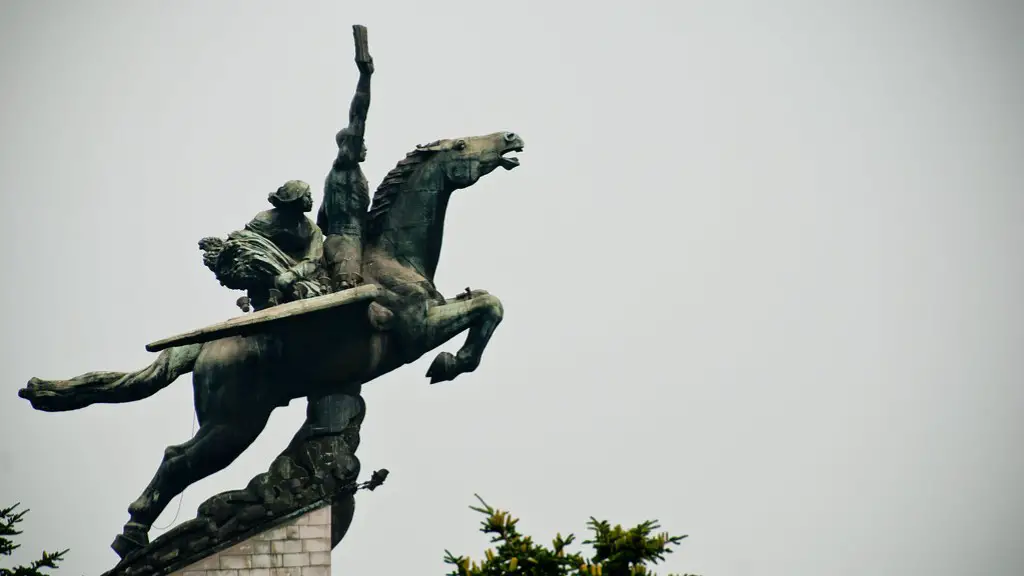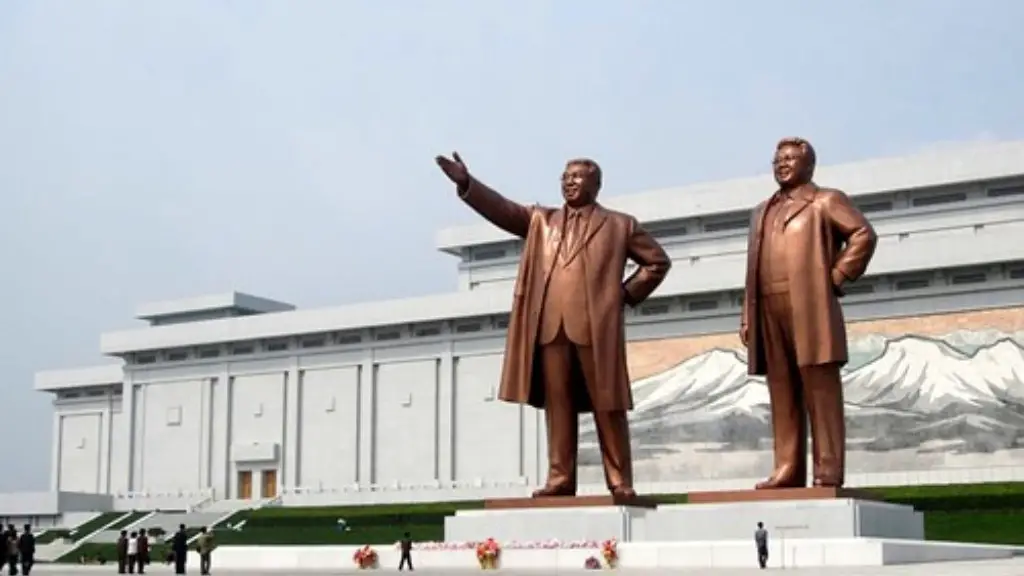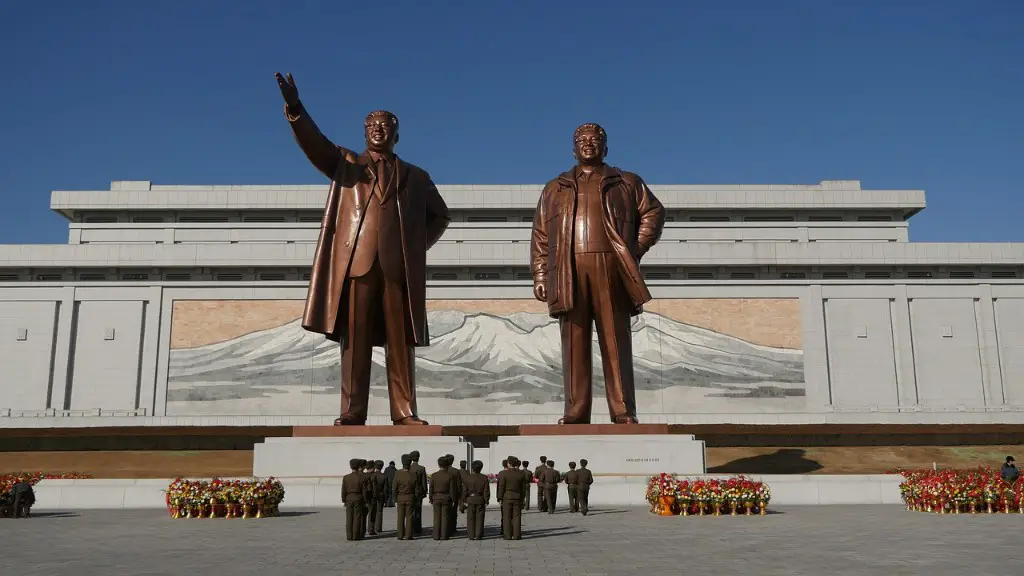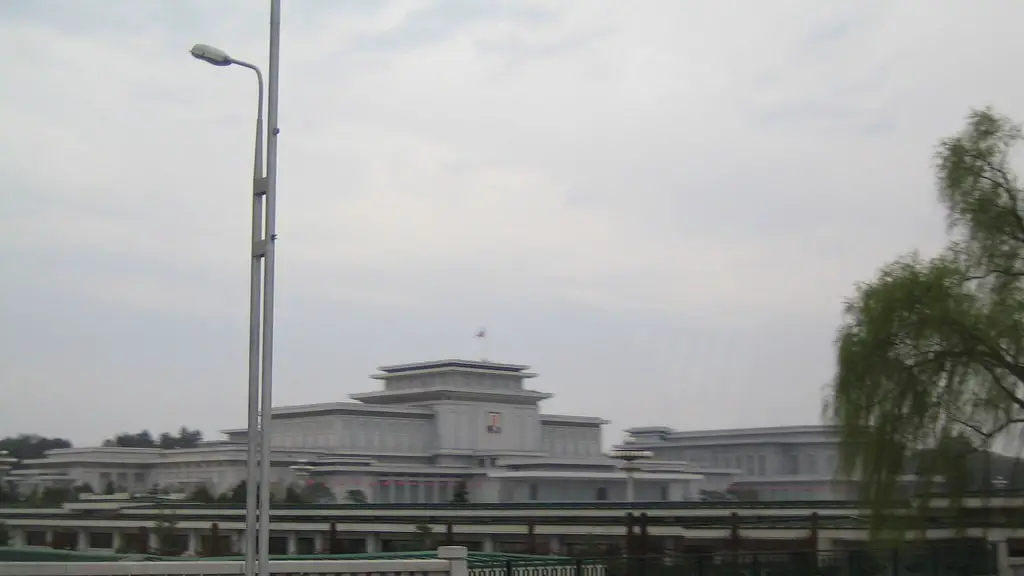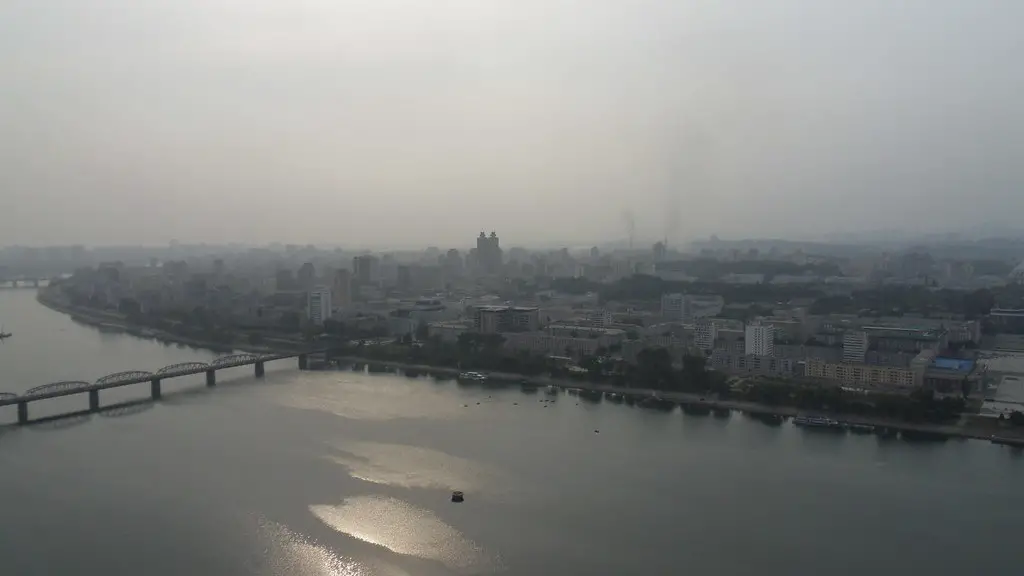Kim Jong-un is the current leader of North Korea and the third member of his family to have held power. Born in 1984, Kim Jong-un is the third and youngest son of former North Korean leader Kim Jong-il, and was first introduced to the world stage in late 2010. The young leader is the face of North Korea and his policies are of paramount importance for its future.
Kim Jong-un’s rise to power has been a quick and often controversial one. Having effectively usurped power from his father, Kim Jong-un assumed control of North Korea at the age of just 27. His reign began with a series of aggressive policies, including a military buildup and the testing of missiles. This was in stark contrast to his father’s more lenient foreign policies, leading many to criticise Kim Jong-un for his ‘bellicose rhetoric’.
Despite this, Kim Jong-un has been praised for his focus on the economy and his efforts to reduce poverty in North Korea. He has also put greater emphasis on the country’s education system, pledging to make North Korea a ‘knowledge-based economy’. His work to improve the lives of North Koreans has improved his standing in the eyes of many, although his human rights record remains very poor.
What is the impact of Kim Jong-un’s leadership on the world stage? With North Korea’s nuclear weapons and long-range missiles, Kim Jong-un has become an important international figure. His administration’s aggressive rhetoric has been a major source of regional tensions, while his ability to diversify his country’s economy has earned him respect in many circles. As well as this, Kim Jong-un has achieved greater international recognition for North Korea than either of his predecessors.
Kim Jong-un’s legacy remains to be seen. While he has been able to make progress in some areas, his brutal and often illegal tactics have left North Korea in a precarious position. He has been criticised for his disregard for international norms and for his dubious commitment to human rights. Questions remain about what the future holds for North Korea under Kim Jong-un.
Relationship with the US
Kim Jong-un’s relationship with the United States has been particularly fraught since his assumption of power. He has been openly hostile towards US President Donald Trump, and has often threatened war and international action against the superpower. In turn, Trump has frequently disparaged the North Korean leader, alleging him to be ‘acting very, very badly’.
Despite this, there have been some notable breakthroughs. In 2018 Kim Jong-un visited with President Trump in Singapore, becoming the first North Korean leader to do so. This summit marked a major step forward in US-North Korean relations, and both men pledged to strive for a more peaceful and united world.
This peace process, however, is by no means straightforward. Kim Jong-un’s continued belligerence has led many to question his commitment to peace. He has launched numerous missile tests and conducted cyber attacks against US interests. As such, the relationship between President Trump and Kim Jong-un will be a key factor in the future of US-North Korean relations.
The Future of North Korea
Kim Jong-un’s future is equally uncertain. He is known to be a survivor, having already outlived both his father and elder brother. However, the extent of his authority is balanced by the power of his military and the lack of strong internal opposition.
What is certain is that Kim Jong-un’s actions and decisions will have a major impact on the future of North Korea. He has promised to make North Korea ‘an exemplary state for the world’ although many doubt the sincerity of this promise. As the country continues to face immense external pressure, his ability to steer North Korea in the right direction will be closely observed by the international community.
Domestic Policy
Domestically, Kim Jong-un has made attempts to improve the lives of ordinary North Koreans. In 2014, he issued a nationwide mining ban, declaring that no mining was to be allowed on mountains or in nature reserves. He has also promoted free education, improved healthcare and housing, and opened up economic opportunities.
Kim Jong-un has also restarted celebrations of Kim Il-sung’s birthday – the founder of the DPRK — with festivals, parades, and various other cultural events. This has helped to create a renewed sense of national identity and pride.
However, Kim Jong-un’s domestic policy is not without its flaws. He has been criticised for his heavy-handed suppression of any form of dissent, and his human rights record remains controversial. Despite his attempts to improve the lot of North Koreans, he is still seen by many as authoritarian and oppressive.
Repression and Human Rights
Kim Jong-un’s repression of human rights continues to draw international criticism. He has continued to maintain a repressive grip on the population, using surveillance, censorship, and torture. Reports of his regime’s human rights violations have been common, including the disappearance and execution of opponents.
Human rights groups have called on Kim Jong-un to end his repressive policies and respect the rights of his people. Such calls have been ignored, and Kim Jong-un’s commitment to human rights remains highly questionable.
Kim Jong-un’s treatment of dissidents has also been called into question. He has been accused of imprisoning those who disagree with him and denying them their right to a fair trial. In addition, those who are sent to prison camps are often subjected to inhumane treatment and torture.
International Relations
Kim Jong-un’s foreign policy has also been criticised. He has been accused of using North Korea as a tool of intimidation, regularly threatening major powers such as the United States and Japan. His bellicose rhetoric has often been seen as a way of distracting from domestic issues in North Korea.
Kim’s foreign policy has also been criticised for its isolationism. His failure to engage with his international neighbours, coupled with his unwillingness to accept international aid, have left North Korea increasingly isolated.
Ideologically, Kim Jong-un has been a staunch defender of the doctrine of Juche, the idea of self-reliance pioneered by his grandfather, Kim Il Sung. He has sought to further this ideology in international affairs, encouraging North Korea to stand on its own and become more independent.
The Legacy of Kim Jong-un
Though Kim Jong-un has made some progress in improving the lives of his citizens, his legacy is still very much in question. Many view him as an authoritarian leader with a disregard for international norms and human rights. His acrimonious relationship with the United States and his aggressive foreign policies have left North Korea isolated and vulnerable.
What is certain is that Kim Jong-un will remain a major international figure for the foreseeable future. His decisions and actions will continue to have a major impact on North Korea, the region, and the world. How he is judged in the eyes of history is still to be seen.
